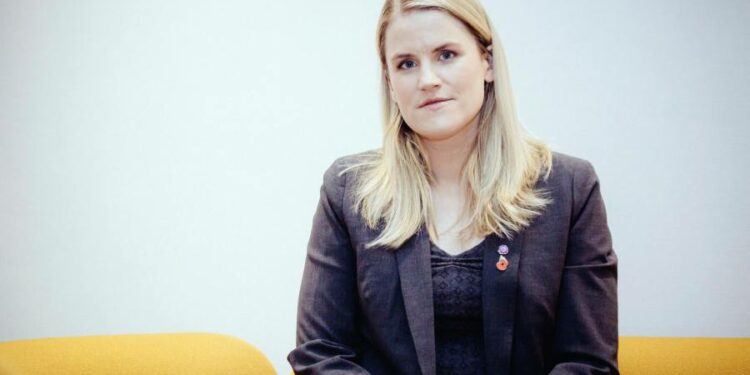The writer is a whistleblower and former Facebook employee
I became a whistleblower as a last resort. During my time at Facebook, I encountered the horrible truth that the company’s choices endangered lives around the world and that it had hidden the information the public needed to protect itself. That’s why I released documents that showed what the tech giant knew and how it had still failed to act.
Many call me brave but today I want to credit the role of an under-appreciated “early warning system” — civil society. Countless brilliant researchers and determined investigators from all over the world — Spain, France, Netherlands, Myanmar, India, Brazil — have spent years warning social media platforms and lawmakers of crises, often in real time. They have nowhere near the resources of Big Tech, yet much of the public’s analysis of social media’s harms is because of the massive evidence base they have created. Without this, emerging regulation would be built on theories of harm, as opposed to actual facts.
That’s why I strongly encourage lawmakers to ensure that civil society organisations with a record of integrity and excellence in research gain access to platform data under the Digital Services Act (DSA). Right now, EU lawmakers have a golden opportunity to change the rules of the game and create a world class data access regime. They must ensure that a final deal provides robust and secure access to vetted researchers from civil society and not just academia.
In representing the interests of citizens — the users of social media — such groups have a long history of providing “SOS alerts” to platforms and policymakers based on local knowledge. In December last year researchers warned about a massive uptick in Russian propaganda on social media, preceding the full scale assault on Ukraine this February. Tracking hate speech and disinformation in languages such as Lettish (Latvian) or Czech requires eyes on the ground that only civil society brings. That’s why these organisations need access to meaningful public content, which allows them to see in real time which stories are going viral, and how narratives might be co-ordinated. Organisations such as Global Witness, the Institute for Strategic Dialogue and Avaaz are the canaries in the coal mine and much better placed than academics to ring the alarm bell in emerging conflicts.
Access to data can save lives. One of my goals in coming forward with so much internal Facebook data was to provide evidence that the platform spends comparatively little on protecting you if you don’t speak English. Eighty-seven per cent of Facebook’s operational budget to combat disinformation goes to protecting users in the US who make up just 10 per cent of its user base. By giving data access, the DSA can recognise that activists and researchers will continue to be a first line of defence. Civil society issued the early alerts that vulnerable Middle Eastern refugees were being shown fake stories about the EU welcoming them, which put them at grave risk of physical abuse and detention. Their research can prevent violence, help save lives and enable access to justice.
We don’t know how disinformation, hate speech and online propaganda are going to evolve, particularly in Web 3.0 and the Metaverse. But evolve it will. If we create a choke point in the DSA and only allow regulators or academics to be able to open the black box of platform algorithms, then we will create a big flaw in its transparency regime.
There are legitimate fears that opening up data access could mean sensitive data ending up in the wrong hands. These are not unreasonable fears but they are surmountable. The act could ensure that adequate safeguards are put in place, by examining any conflicts of interest, the organisations’ funding, the rigour of their research, independence from any state, etc. These same robust criteria can ensure that only organisations that comply with GDPR and can be trusted not to leak trade secrets are granted access. Ideally the DSA would facilitate the creation of an independent mechanism that would be able to vet researchers and research proposals.
The question of data access for civil society should be focused on “how” and “who” should get it, rather than “if”. Over 100 civil society organisations signed the People’s Declaration in the EU demanding to put “people back in charge” under the DSA. The way to do that is through data access. The collective expertise of whistleblowers and civil society research has played a critical role in shaping the act. During these final negotiations, the EU must enshrine in law the role that we can continue to play in protecting our children, our democracies and our freedoms.











